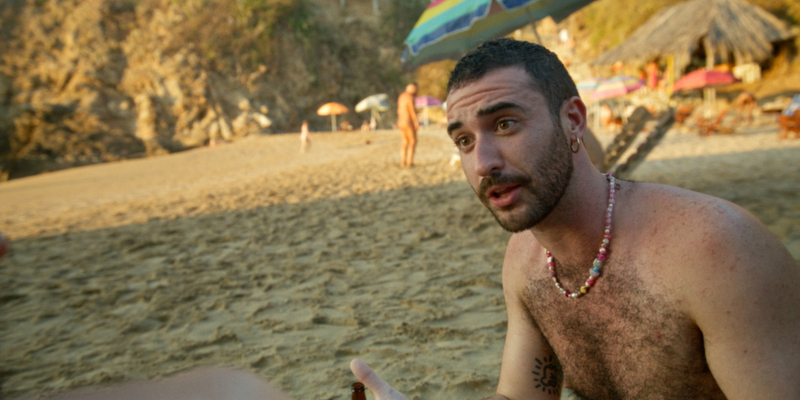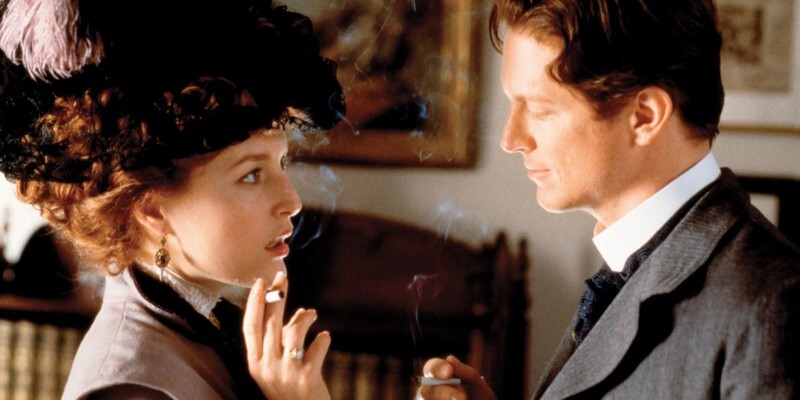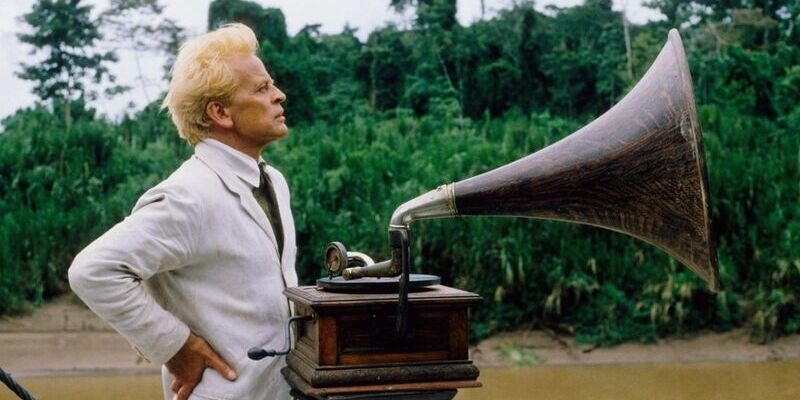

Rotting in the Sun
Chilean writer-director Sebastián Silva hilariously turns the
camera on himself in the Sundance hit
Rotting in the Sun (2023), his fresh and fun meta-comedy
that skewers the business of filmmaking and our self-obsessed culture.
Depressed, doom-scrolling and downing absurd amounts of Ketamine, director
Sebastián Silva takes a much-needed break from Mexico City to unwind at a
gay beach town. There, he encounters gregarious Instagram influencer
Jordan Firstman (playing himself), and Sebastián reluctantly agrees
to collaborate on an upcoming project. But, when Jordan arrives in Mexico
City to get to work on their project, Sebastián is nowhere to be found and
his skittish housekeeper Señora Vero (Catalina Saavedra) seems to
know more than she's letting on.

Spotlight on Sebastián Silva
A darling on the international indie scene, Chilean director Sebastián
Silva made a name for himself through a series of critically acclaimed
satires containing a distinctive blend of dark comedy and critique.
MUBI'spotlight on Silva highlights his self-referential, self-mocking,
explosive comedies, each film moving into more outrageous, unhinged and
ambitious territory.

Bound by Desire: Erotic Thrillers
Combining elements of sensuality, sexual tension, and suspenseful
storytelling, the erotic thriller subgenre has blurred the lines between
danger and desire ever since it gained prominence in the 1980s. Within this
focus, MUBI brings the neo-noir crime thriller Bound (1996),
which sees a passionate love affair develop whilst navigating a web of
deceit. Adrian Lyne's Unfaithful (2002) explores
similar themes of infidelity and emotional turmoil when Connie's life
spirals out of control after she engages in an illicit affair. Rounding off
this focus is Brian De Palma's Passion (2012), which
explores themes of power, desire and psychological manipulation when
tensions rise among two colleagues at an advertising agency.

To Sleep So as to Dream: Three Films by Apichatpong Weerasethakul
The cinema of the great Thai filmmaker
Apichatpong Weerasethakul haunts liminal, transitional spaces where
spiritual borders are as permeable as those between consciousness and
dreams. It's a fascination made literal in
Cemetery of Splendour (2015), in which ancient spirits cross
into the modern world and a group of soldiers are struck down by a
mysterious sleeping sickness. Also featuring in this special triple bill is
the Cannes Film Festival Palme d'Or winner,
Uncle Boonmee Who Can Recall His Past Lives (2010), which
weaves together the story of a man facing his own mortality with
supernatural elements, and the unique and experimental
Mekong Hotel (2012).

In Search of Lost Time: Films by Terence Davies
Celebrated as one of Britain's greatest living filmmakers,
Terence Davies has crafted enthralling lyrical reveries of memories
lost and found, where the past is more achingly alive than the present.
Casting a sympathetic eye to outsiders, Davies' films are sensitive to the
values of community and familial relationships, as well as the healing power
of popular music and cinema. This September MUBI brings Davies' poignant
exploration of family dynamics and memory
Distant Voices, Still Lives (1988), along with the New York
period drama starring Gillian Anderson,
The House of Mirth (2000) and Davies' personal documentary
exploring his hometown, Liverpool,
Of Time and The City (2008).

Abel Ferrara: A Double Bill
Celebrated for his unconventional anti-heroes, American filmmaker
Abel Ferrara started his career shooting pornographic and slasher
films and has since gained a reputation for creating raw and gritty films.
While his work has sometimes courted controversy, his distinctive cinematic
voice has also earned him recognition and a dedicated following. Often
addressing themes of human nature, morality, and personal struggles,
China Girl (1987) and Tommaso (2019) stay true
to this and depict his exploration of characters dealing with cultural
clashes and internal conflicts.

The Cowboy and the Frenchman
In the Wild West, three cowboys capture a mysterious, well-dressed
Frenchman who introduces himself through food and poetry. This collision
of cultures, stormy at first, paves way to a joyful bonfire evening.
The Cowboy and the Frenchman (1988) is a surreal and
light-hearted comedy from legendary director David Lynch, predating
the pilot of Twin Peaks. Cheerful and good-humoured in its funny commentary on stereotypes both
of France and the American Wild West, the short stars
Harry Dean Stanton as a deaf cowboy and Jack Nance as his
friend.

Performers We Love: Vicky Krieps
Since the mid-2010s, Vicky Krieps has become an indelible,
irresistible screen presence performing womanhood with a singular kind of
unkempt grace. Whether her character is suffocated by a tightly-laced corset
or just plain old domesticity, Performers We Love: Vicky Krieps shows the
polyglot actress come alive in battles with convention, liberating her
characters to be achingly fragile and resilient all at once.

Werner Herzog: Ecstatic Truths
Continuing this September is MUBI's very special focus on
Werner Herzog, Werner Herzog: Ecstatic Truths. Endlessly
versatile, there are few stones Herzog has left unturned — whether moving
between documentary and fictional modes or boldly experimenting with the
potential of genres like science-fiction and thriller. From the deepest
jungles to the American heartland, these films demand physically involved
performances from a talented, often recurring, cast of actors. Committed to
a relentless pursuit of the "ecstatic truth" of art, Herzog's films are
inspired by a roving spirit of adventure and exploration that pushes at the
very limits of human experience.

